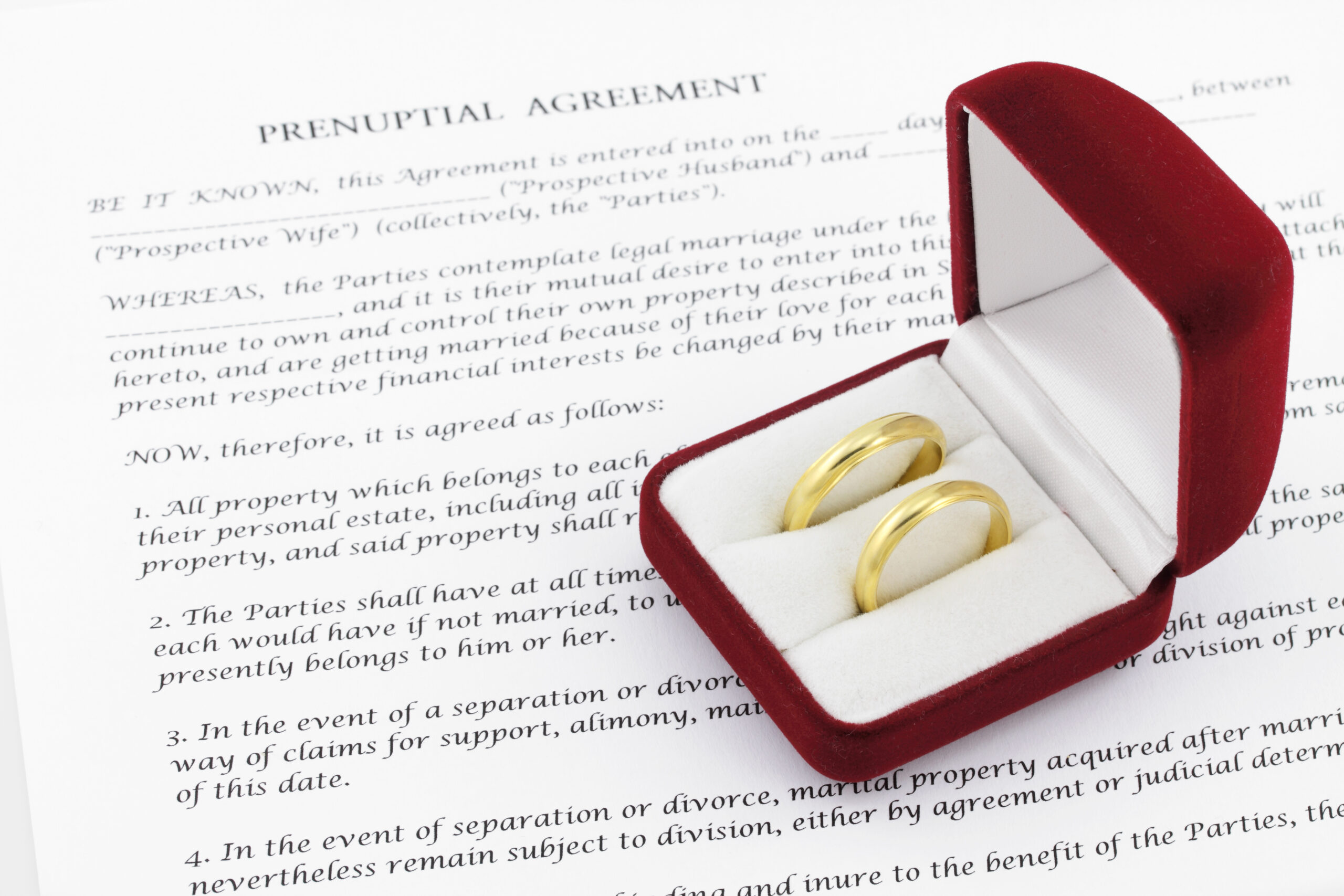Arizona Certified Family Law Specialist Discusses Purposes of Prenuptial Agreements
As an Arizona State Bar Certified Specialist in family law matters in Arizona, I have assisted many clients in preparing prenuptial agreements. However, even after the prenuptial agreement has been properly drafted, negotiated, and signed (hopefully with a proper signing ceremony), there are a few additional steps that should be taken by the parties.
PRENUPTIAL AGREEMENTS AND THE TRANSCRIPT FROM THE SIGNING CEREMONY SHOULD BE KEPT IN A SAFE PLACE:
The protection of a prenuptial agreement is only as good as the document. If the prenuptial agreement is lost, hidden, stolen, misplaced, burned, or for whatever other reason cannot be found at the time of divorce or other life event, the missing prenuptial agreement cannot be enforced by the Court.
Each party should have their own copy of the prenuptial agreement. The transcript from the court reporter from the signing ceremony should be kept together with the prenuptial agreement also. These should be kept in a safe, safety deposit box, or other location along with important documents such as passports, birth certificates, etc. Both parties should also keep electronic copies in various locations, and it would not be a bad idea to have hard copies stored with a sibling or close friend. Your attorney may keep a copy for a few years, though if you are divorced after many years your attorney may have retired, or may not have stored a file from years or decades ago.
RECORDATION OF A MEMORANDUM OF PRENUPTIAL AGREEMENT:
Some attorneys advise their clients to have the entire prenuptial agreement recorded. However, a properly worded prenuptial agreement has a tremendous amount of personal information, and recording the document in a place accessible to the public is like providing the identity thief with a treasure map to your personal fortunes.
However, there is an advantage to recording the prenuptial agreement, as it will help against claims by creditors of one spouse or the other, as the law holds them on constructive notice of knowing about the prenuptial agreement, and therefore adhering to its limitations on collecting against the other spouse, if the prenuptial agreement has been properly recorded.
The best of both worlds can be achieved by recording only a Memorandum, which has the names of both parties and the date of the signed prenuptial agreement. Without giving any more personal detail, the Memorandum can be recorded and the world is on notice of the existence of a prenuptial agreement, without having access to the specific terms of the prenuptial agreement and financial information of each party.
AVOIDING COMINGLING AFTER MARRIAGE:
While the specific contractual terms of each prenuptial agreement will vary from case to case, most prenuptial agreements can be significantly hampered if the parties are not careful to avoid comingling.
In order to keep the sole and separate property of each party separate from the other party, and to avoid comingling, accounts should not be combined. I generally recommend that the parties specifically identify one or more joint accounts, and that the parties each contribute to these joint accounts such agreed upon amounts necessary to make the joint payments of various household bills.
In the event of a death or divorce, only the amounts in the joint accounts have been comingled, and so the risk of comingling is limited to the relatively small amounts in the joint accounts, and has not contaminated the original account from which the money has been transferred.
The greatest of intentions, and the best legal drafting, can be quickly undone by careless comingling of financial assets and bank accounts.
PRENUPTIAL AGREEMENTS SHOULD BE SIGNED BEFORE MARRIAGE, AND ESTATE PLANNING SHOULD BE UPDATED SHORTLY AFTER MARRIAGE:
While prenuptial agreements do have some impact upon what happens upon the death of either spouse, prenuptial agreements are a more important tool for possible future divorce cases.
To properly address what happens upon the death of either party, the parties should work together with an estate planning attorney to ensure that their wills, trusts, and other estate planning documents are in order, and that they have been properly updated based upon the change of circumstances (the recent marriage of the parties).
IS THERE SUCH THING AS A POSTNUPTIAL AGREEMENT:
It is best to have the prenuptial agreement fully negotiated and signed prior to the marriage. After the marriage, the parties can continue to amend the terms of the prenuptial agreement by further contract. Such further amendments should be in writing, signed by the parties, with the signature of each party notarized.
Sometimes I am contacted after the marriage, and asked to do a postnuptial agreement. While postnuptial agreements can be prepared, there are significantly more legal risks with a postnuptial agreement compared to a prenuptial agreement. Parties should not skip the prenuptial agreement with plans to just do a postnuptial agreement after the honeymoon, as doing so adds in many easily avoided risks.
If parties have already married and now want a postnuptial agreement, they should speak with their attorney about various options including a postnuptial agreement or a legal/financial separation agreement. Each of these have differing legal risks and costs and both should be discussed with a qualified attorney.
***
If you or your friends or family members are engaged or close to getting engaged, and if you have determined that you need experienced legal representation for your prenuptial agreement, please call
480 733-6800 and ask to speak with Douglas C. Gardner.

